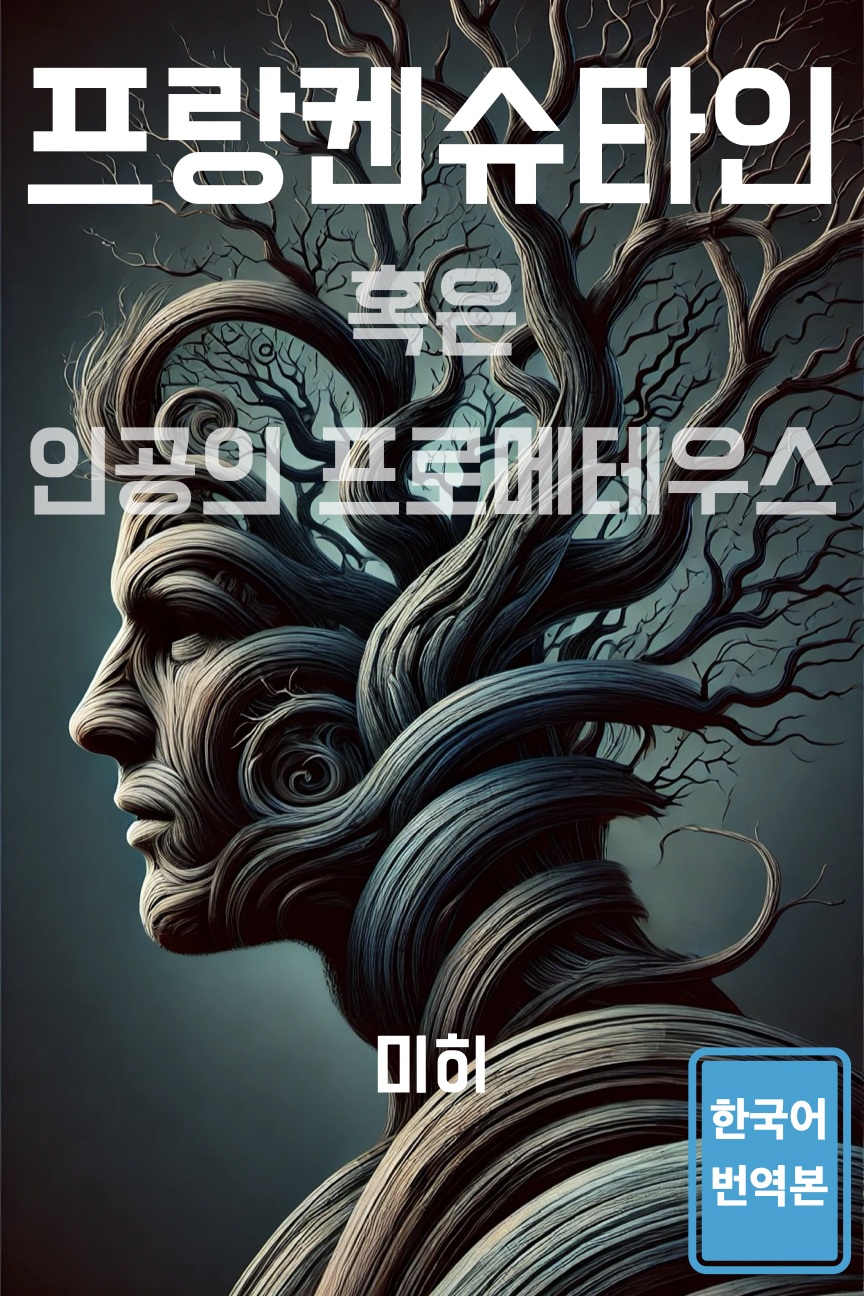🔗 Pre-release: Korean Translation ⚡️
© MIHI, 2024. This document may be freely distributed and modified for non-commercial purposes. To protect the rights of the original author, please share the name 'MIHI' and the original link 'https://buymeacoffee.com/mihiplacessemper'.
We are thrilled to announce the pre-release of the Korean translation of "Frankenstein: Or, the Artificial Prometheus" for our Korean fans.
"Frankenstein: Or, the Artificial Prometheus" draws deep inspiration from Mary Shelley's timeless masterpiece, "Frankenstein: Or, the Modern Prometheus." Shelley's original work, written in the early 19th century, explores profound reflections on human creation and its consequences, establishing itself as a significant piece in literary history. Shelley raises questions about science, ethics, and human limits, contemplating the essence of human existence and the responsibilities of the creator. Her work has continually influenced countless readers, sparking diverse interpretations and discussions.
In Shelley's original, the creature is nameless. This anonymity symbolizes his alienation and identity crisis, emphasizing a critical aspect of his character. The creature constantly questions who he is, where he came from, and why he exists, living in perpetual agony. By leaving him nameless, Shelley powerfully expresses his loneliness and exclusion from human society. This namelessness serves as a crucial symbol throughout the story.
While writing this piece, I wondered what it would be like if the creature had a name. A name is vital in imparting identity and presence. Through names, we understand who we are and how we differ from others. So, what would the creature's name have been? How would his life and identity have changed if he had one? This curiosity led to a deep exploration.
"Frankenstein: Or, the Artificial Prometheus" began with these questions. In this work, the creature is given a name and identity, unfolding a new story from this change. Now, the creature defines himself through his name, seeking new meaning in his existence. No longer merely a 'monster,' he communicates with readers as an individual with a name and story. Through this process, readers can understand and empathize with the creature's perspective more deeply.
This novel aims to pay homage to the original while offering readers a new interpretation and experience. By giving the creature a name, we seek to reflect deeply on his existence and identity. Through this, we reconsider thoughts about human existence, identity, and our relationship with society. We hope this novel provides readers with a deeper understanding and empathy for the creature's story, shedding new light on the profound themes and messages within Mary Shelley's original work.
Finally, we hope this work breathes new life into the creature's story, sharing his pain, conflicts, and hopes. We aspire for readers to look deeper into the creature's inner world, empathize with his tale, and find moments of reflection on the meaning of human existence. Thank you.
Enjoy this chilling tale to stay cool during the hot summer. Your feedback is greatly appreciated.
